[00:00:00] ANNE BOGEL: Hey readers, I'm Anne Bogel and this is What Should I Read Next?. Welcome to the show that's dedicated to answering the question that plagues every reader, what should I read next? We don't get bossy on this show. What we do is take a personalized approach to the reading life, giving you the information you need to choose your next read.
We have a great conversation for you today that feels exactly right for right now, really any time of year. So hello to our Southern Hemisphere friends. You're in good hands.
I'm excited to get to it. But first, I want to tell you about some giftable books for the season. Some of you are on the hunt right now for perfect gifts to give the readers in your life.
And look, we all have readers in our lives who are tough to shop for. Maybe they read exclusively on their e-reader. Maybe they're a huge library reader. Maybe you're just worried that they've already read everything. I know these readers. I might be one of these readers.
[00:01:05] My reading journal makes a great gift for this crowd. My Reading Life is the perfect companion for any adult, no matter how many books they're reading or in what format. With 100 blank entries to record what they've read, plus a place to keep track of their to-be-read list, and lots of book lists to help them pick what to read next, it's not just a journal. It's an all-around reading life planner.
I also have a version for kids, My Reading Adventures, which has the same elements as My Reading Life but is more interactive with reading activities. This works for kids who can read and write on their own all the way up to the early teen years.
To make the readers in your life feel completely seen, consider getting them the I'd Rather Be Reading bundle, which includes my book, I'd Rather Be Reading, a compendium of reading life thoughts, insights, and more sure to delight. The bundle also comes with a matching sticker, button, and exclusive bookmark.
Shop now wherever you get your new books or orders signed and personalized. If you'd like copies from our shop, that's ModernMrsDarcy.com/shop. That is the only place to get the I'd Rather Be Reading bundle, ModernMrsDarcy.com/shop.
[00:02:11] Readers, we know that creating a cozy reading experience is a goal for many of you, but when today's guest wrote in with a unique spin on this request, I knew we had to hear more.
Lauren Worley is joining me today from Virginia, where she's a wife, mother, and registered nurse. Lauren's job requires her to be in her car and on the road a lot, so she has fully embraced audiobooks in this season and really relies on this format to make the most of her reading life right now. Forget making the most, to make her reading life happen right now.
Lauren doesn't just want to tune in while she's in transit, though. She wants to create a cozy audiobook reading experience in her car to make the most of this time she knows she's going to spend on the go. To Lauren, this means not only the physical experience of feeling cozy but also finding what she calls cozy audiobooks, which, as you'll hear, are perhaps not the cozies you maybe immediately started thinking of.
[00:03:06] I did too at first, I was wrong, and Lauren is going to tell us all about it. She'll explain how this means stories that transport her from where she is into another world, that have a background setting of fall or maybe even the holiday season, and often incorporate some type of journey. As you'll hear, Lauren loves stories that are immersive, realistic, and put relationships front and center.
Today, we'll talk about titles that might fit Lauren's criteria, as well as ways she can invite that cozy reading atmosphere into her experience, even when, and maybe especially when, she is on the road. Let's get to it.
Lauren, welcome to the show.
LAUREN WORLEY: Hi, Anne. I'm so excited to be here.
ANNE: Our whole team was really excited about your submission, and I'm excited to talk today. Thanks for being here.
LAUREN: Yeah, of course. I feel like the lucky one.
ANNE: That is very kind. Lauren, we'd like to give the readers a glimpse of who you are. Can you tell us a little bit about yourself?
LAUREN: Yeah, definitely. I'm a mom, a wife. I have three small children. They are ages five, four, and one. So as you can imagine, life is fun and crazy and hectic, and all the things.
[00:04:18] We live in a pretty small town about 45 minutes southeast of Richmond, Virginia, in a pretty rural area. My husband is from here. I'm originally from the Richmond area, so I'm kind of a rural transplant of about eight years now. It's good. We live in a nice little small town. I have a dog, Annabelle, and my husband, Chris.
My job, my profession, I'm a registered nurse. During the week I do home health full-time, so I spend a lot of time in my car, a lot of time visiting with my patients.
ANNE: So you're traveling around, going to lots of different patients?
LAUREN: Yes. Yeah, I do. I go visit patients in their homes, patients that are what we call homebound, that aren't really able to get out that easily. So, somebody that could get out and go do maybe wound care, that would be easy for them to get out of their home and go to a clinic. I go see the patients that couldn't necessarily get out so easy to do that. So a lot of wound care, a lot of education on chronic conditions like COPD, CHF monitoring, that type of thing. A lot of post-op patients that are homebound for just a little bit right after surgery that need to be checked on with certain things. So that's a little glimpse into kind of what my week looks like.
[00:05:49] I'm also an ER nurse. That is my specialty. I have been doing that for about eight years now. I recently just started home health in the last year. I kind of feel like an imposter when I say I'm a home health nurse, but that is my full-time job during the weekend. But my specialty is ER nursing and I do that on the weekends sporadically. I can't give that up.
ANNE: Well, you mentioned that the place you're in in the structure of your life has a big impact on your reading life. So thanks for setting the scene for us.
LAUREN: Yeah, it definitely does. Lots of time, like I said, spent in my car. So a lot of time for podcasts, audiobooks. Whereas I might not have as much time right now for your traditional sit-down, cozy reading, I do have more time for audiobooks. So that's where I am right now.
While I do love the feel of a physical book in my hands, I'm not trying to get into that debate where physical books are superior or whatnot. I do love the feeling of a physical book in my hands, but I think that it's really important to meet yourself where you are. And right now, I wouldn't get any reading done if it weren't for audiobooks. I think that they're an excellent, excellent tool and resource that we have.
[00:07:12] ANNE: Tell me more about what your reading life looks like right now.
LAUREN: My current reading life would be on life support if it were not for audiobooks because, with the children and the working, I do not have the time or a lot of times the mental wherewithal to sit down with a book and be invested at all right now. So my reading life looks like probably about 80% audio right now.
Overall, over the course of my life, I've always kind of gravitated towards historical fiction, and that's always been what I would consider my favorite genre. I am still definitely getting my feel of historical fiction, but I've been into a lot of contemporary fiction and a lot of cozy mystery right now. So that's kind of where I am right now.
ANNE: You said in your submission that historical fiction for some reason has not been a genre that's really worked for you on audio. Is that still true? Has that evolved since the time you sent this in, in August?
[00:08:13] LAUREN: Yeah. It's funny. I was rereading what I had written and I was thinking, you know, looking back at my... I keep the log on Goodreads, and looking over the last few months, I really have done quite a bit of historical fiction on audio and none of them really fell very flat for me at all. So I was trying to remember what did I read or what wasn't that great that prompted me to write that.
But I think sometimes when you have a narrator that's trying to do a lot of different points of view on audio, sometimes, and this is very trivial, but sometimes the voices can, I don't know, it distracts me from the dialogue, from the plot, because I'm just like, wait, who sounds like that? So I think that I've encountered that a lot more with historical fiction as opposed to more contemporary novels on audio.
[00:09:16] ANNE: Wait, wait, wait, wait. You sound really apologetic for not thinking the audio was done in a way that you find enjoyable to listen to.
LAUREN: Right, because I'm sure that it takes a lot of talent, especially... I'm just thinking of, you know, a few books that I've listened to that I've thought, you know, they had one narrator that's voicing a lot of characters and I've thought, who sounds like that? I mean, it distracts me. And it might be because also I've thought about this and I probably need to slow it down, but I listen at almost two times speed. So that could also be a factor for them sounding a little funny, especially when they're trying to make their voice sound like a different character.
But I think that that's probably what I was thinking when I wrote that they fall flat, because sometimes that can be distracting. But the last few that I have listened to, I have thought were really good and definitely did not fall flat for me. And I'm sure we can discuss specific titles later, but...
[00:10:20] ANNE: Ooh, okay. We'll do that. I have to tell you, something I was wondering when I read that was, okay, what's going on here? Just because a book is in a genre you love doesn't mean you're going to love that specific title. And also the book may fall flat for you in audio, but what I would want to know is, would that book have fallen flat for you in print or would that have been a different reading experience? So I was just trying to tease out, what kind of books are right for you and then what kind of books are right for you on audio? I'm really glad this question has stuck in your brain.
LAUREN: Right. With historical fiction, I don't know. I mean, obviously, I can't feel nostalgia for like the 1800s because I wasn't there. But there's a certain feeling that historical fiction really evokes for me. And I'm wondering, like you're saying, if those books that fell flat in audio would have fallen flat in print. And probably not, because I think that historical fiction overall just kind of evokes a certain feeling. And like you said, also, not every single book in a favorite genre is going to be for you. So there could be a little bit of that being a component also.
[00:11:26] ANNE: We will talk more about the audio. Lauren, you brought up another... "issue" feels like the wrong word. You brought up another consideration in conjunction with the audio. And that is that you spend a lot of time in your car. You already dropped the word "cozy" within like the first 20 seconds of words describing your reading life.
You mentioned that since so much of your reading takes place in your vehicle these days, and you value that feeling of coziness in your reading life, you'd like to think about cultivating that on the go. Or am I putting words here? Tell us in your own words. What are you thinking right now for your reading life?
LAUREN: So when I first heard about the cozy reading topics, you know, obviously your mind kind of goes to the generic, well, you need to have a fuzzy blanket and warm coffee and you need a quiet house and a bright corner and the ambience just needs to be perfect. And obviously, I love that reading experience as much as the next person. I mean, that's like a dream to me.
[00:12:42] But where I am in life right now, that just doesn't happen right now. I'm sure I'll eventually get back to a phase of life where I can experience and live that cozy reading life. But right now where I am is a very busy mom, full-time working mom of three that still loves books very much and wants to enjoy them. But how can I, you know, cultivate that feeling that I get when I have a fuzzy blanket and a quiet house, but where I am in life right now?
Something that I have been thinking about a lot is just trying to get that feeling and create that atmosphere when I'm in my car for sometimes what could be up to an hour-long drive, you know, seeing certain people. That time could be potentially wasted if I didn't make the most of it.
[00:13:42] So I really love to listen to audiobooks when I'm on these long commutes during the week, and just figuring out how can I make that experience even more. Ways that I have come up with in my head is getting a favorite drink, or even just a coffee. It doesn't have to be anything elaborate. But getting like a hot coffee and having the heated seats on in the car and having the temperature just right.
I've kind of just turned into like this, well, I've got to make this a glass half full type of situation, you know? I might not be exactly where I want to be but I can have the right audiobook, the right beverage, the right ambience in my car and make it a cozy experience. Maybe not cozy per se, but evoke that feeling that I would get if I was in a traditional cozy atmosphere.
[00:14:47] ANNE: I love that. You know what it makes me think of is a maybe similar in mindset, but different situation in my own life where a few years ago, I do not remember the inciting incident here, but I decided instead of trying to work and manage my notifications and pull up my Slack app to talk to my team, I love you team, but you know how it is in waiting rooms, like going to the doctor, something that I tend to have a little bit of stress about anyway. I can say that to the nurse, right?
LAUREN: Right. Yes. Yeah, absolutely.
ANNE: That I would read and not like functional reading or task-driven reading, but the book that I want to read. Like usually the novel that I am enjoying right then. And look, it might be a novel for work, but the point is I get to read my story in the waiting room, even if it's the middle of the workday. And that transformed the like dread and I'm missing things to like this moment of like, exhale. Oh, you know, I get a few minutes. And if they don't call my name within 20 seconds of me sitting down, that's okay. Maybe I can finish the chapter.
[00:15:57] LAUREN: I love that. You got to meet yourself where you are and you got to make the best of the situation that you're in. And you know, whether that's being at work or being in a doctor's waiting room, you know, neither one is something that's particularly desirable. So just making the most of that experience and meeting yourself where you are is... I think there's something to be said for that.
ANNE: Yes. And even more so in your vehicle, I'm almost imagining that you have this little bubble, you know, taking you where you need to go. It's just you en route to your next appointment in your work day. But you can make of that space what you will.
And I really appreciated the invitation when you asked this question to think about: what does it mean to be cozy? And sure, you might picture yourself curled up in your favorite reading chair or on a couch, but that's not available to you in a car. So not just what does it look like, but what does it feel like?
[00:16:56] And I started thinking about how it's about feeling safe and snug and cared for. I love how you have thought about how to implement that on the go. You can do better than me because I can't take... Well, I mean, I guess I could, but I'm not going to walk into a medical waiting room with a big fluffy blanket, but I could certainly keep one in my car.
But I was thinking how, okay, if I was driving around rural Virginia, what might I want to do? Of course it depends on the point in your day. Like you might carry something like a hot water bottle if you get cold in the car out of your house, but you wouldn't necessarily ask a patient if you could like refill during the day.
But for me, a lot of times coziness looks like just feeling physically comfortable. Lots of people like pillows behind their back instead of just their car seats. You could do that.
[00:17:49] Snacks and beverages are big for me. So you mentioned the coffee, but I also thought stocking up the glove box or the trunk with some snacks that I enjoy eating on the road might be nice.
I also like to feel clean and cared for. Weirdly, I think a big part of cozy for me would be confidence that my windshield wipers are going to work if it starts raining. Or not having trash next to me, but gathered nicely in a recycled grocery bag.
And then I'm also really in the smell. I don't know how you feel about smell.
LAUREN: I don't like a super strong scent, but I don't like an offensive odor either.
ANNE: Nobody likes an offensive odor. But I hear you. That's definitely subjective.
LAUREN: Yeah, right. I mean, I can handle it obviously in this profession, but no-
ANNE: I had not thought about that.
LAUREN: ...I want my car to smell nice, but not too strongly. So I do have really bad allergies. So a super strong scent could definitely kill the vibe for me.
[00:18:55] ANNE: Yeah. When I think about cozy scents, I mean, I love fragrance and perfumes. I've become a big perfume person it seems over the past few years. One of my kids commented to me like, "Gosh, you kind of have a collection now." And I went, "Whoa, I do." But scent is obviously highly personal.
I have these strong memories associated with the smell of constant comment tea. It's like an orange spice black tea. And my mom made it when I was little. And when I was little, she'd give it to me like way sugared up when I was sick. But to me, that just smells like cozy winter days. Cozy winter gray days, but you are cozy inside.
I have this rollerball essential oil. It's not even a perfume. Oh gosh, I wish I could remember who makes it. It's a Thistle something farms essential oil business in Nashville, Tennessee. And it smells like constant comment to me. So it just smells like coziness.
[00:19:55] So I'm imagining, you know, I could drop that in my console. And if I wanted to feel cozy, I could roll that on my wrist just a little because my car doesn't have to smell nice. It could be me. I'm still going to smell it because that car is little. Or roll it on something else in the car that would just give a gentle fragrance.
You know what it smells like to me? It smells like tea brewing. I wouldn't brew tea in my car, but I wouldn't mind the scent.
LAUREN: Right. You're making me wonder, and I never thought of this before, but I don't have a strong association with... I do love a hot tea now, but I don't have a strong association from my childhood like you do with tea. But my grandparents were always drinking coffee.
And now I'm wondering, am I obsessed with coffee because that evokes the same kind of feeling or memory? Or I mean, I probably am just really obsessed with coffee because I'm just constantly tired.
[00:20:53] ANNE: It doesn't take a coffee-obsessed grandparent to hook you.
LAUREN: Is there another layer there that I had never thought about? Possibly. Very possibly.
ANNE: So on a very elemental level, perhaps that scent makes you feel safe and snug and cared for.
LAUREN: And it does. You know, there's something about... I love hot tea, but when I think of cozy, I don't think of having a hot tea. My mind automatically goes to a hot, warm cup of coffee. So is there something there maybe?
ANNE: Well, that sounds fun to ponder as you're driving down the county roads. But I will say you mentioned that you like to get a cup of hot coffee when you're driving in the car. And you know what else smells like hot coffee is hot coffee.
LAUREN: Right. Exactly. You're right. So to answer your question, that would be the scent that I associate with my cozy atmosphere would be the scent of hot coffee. So if there are any air fresheners like that, then I would definitely be on board.
[00:21:55] ANNE: I'm gonna say yes, there's definitely an air freshener out there.
LAUREN: You're probably right. I can't be the only one.
ANNE: You can try it. Let us know what you think. But thank you for that invitation to explore how we cozy up our vehicles. And listeners, I hope you like these ideas. Also, if you're like yelling at your phone, like, I have the perfect thing, please let us know in comments at whatshouldIreadnextpodcast.com.
LAUREN: I think that the type of audiobook also is very important in this situation. I mean, there are things that you listen to, right? I mean, I guess this is the equivalent of being a mood reader. But when I am trying to get that cozy feeling, there's definitely a certain type of audiobook that I'm looking for. I've been very big into cozy mysteries right now. So I think that that really also helps set the atmosphere.
I'm not sure if I would get that same feeling with a heavier, you know, maybe nonfiction or thriller, which I'm not really that big or sci-fi, something like that probably wouldn't get the same feeling. So I think that that is also another important component too, especially for me having the cozy atmosphere just right in the car.
[00:23:14] ANNE: Lauren, that's a really great point. Because I feel like a kindergarten teacher, but we're really hitting all the senses when we talk about creating this snug and cozy atmosphere. And what you're listening to and where you might be imagining yourself as you're to a story factors really big into that.
What are some of the other elements? Are you able to articulate them? I'm imagining probably a strong sense of pace and vivid sensory details on the page, or in your ears.
LAUREN: Definitely a strong sense of place. So I want to kind of be transported from like what I'm doing, which at the crux of things is still technically working, being at work. So I want to be transported from that. So strong sense of place.
Obviously, when you think cozy, it's got to have a background setting of like fall or winter or the holiday season. I mean, there's going to be, you know, cozy themes, I feel like just inevitably intertwined throughout those types of books that are set in that time period.
[00:24:25] And then something else that I've kind of noticed that it gravitates towards is having like a journey or a mystery. I think I've mentioned the cozy mystery thing, but like some sort of journey that the characters are on or mystery woven throughout the book. Those are kind of the three elements that I can put my finger on that I think make an audiobook feel cozy to me.
ANNE: Well, I'm excited to explore more. Can we talk about your books?
LAUREN: Yeah, definitely.
ANNE: You know how this works. You're going to share three books you love, one book you don't, and what you've been reading lately and we'll see if we can apply everything we've talked about so far to come up with a few reads you may enjoy reading next.
What did you choose for your first book, Lauren?
LAUREN: I read this a couple years ago. It is called Poison Lilies by Katie Tallo. If I recall, I believe I did do this one on audio, but this might have been like pre-cozy audiobook time period. But I was super invested in it, and I flew through it.
[00:25:37] So she has two books. Her first book was called Dark August. I read that one and it was really, really good. I mean, it was a solid four-and-a-half-star read for me. I really loved it. And so when I found out that she had another book that came out, it was called Poison Lilies and it was a follow-up to Dark August, I was like, "Oh, wow, I definitely have to read that.
I ended up liking Poison Lilies a little bit more than Dark August, because the characters in Poison Lilies... So the main character, Gus kind of gets brought into this mystery with an elderly neighbor named Poppy. And the elderly neighbor Poppy was just such a fun character. I loved her so much. I think in the description, they describe her as a reclusive neighbor perpetually wrapped in a pink kimono, like an aging old Hollywood starlet. That was so fun.
[00:26:44] I really love elderly characters, especially when they bring a little sense of humor to the book, I think of… For all the Louise Penny people, Ruth Zardo is absolutely probably one of my favorite literary characters ever written. So if you have any knowledge of Ruth, then you can definitely see where I would be drawn to this character, Poppy. So that was fun.
This book kind of met all of the cozy audiobook criteria. We're on adventure, a little bit of mystery set... I'm pretty sure it was set in the wintertime, from what I remember, in a strong, strong sense of place.
ANNE: That's really helpful to hear you describe because I don't think... tell me what you think. But I don't think that this would be included on a bookstore shelf of cozy mysteries like we think about the genre. Like this is a thriller with some serious, realistic secrets.
[00:27:44] LAUREN: Yeah. Probably not. And you know, it's funny because I really don't kind of gravitate towards thriller as literary mystery genre. I kind of will put it in a category like that. I mean, it was pretty literary. And just like Dark August was as well.
Sometimes I find that thriller or mystery can sometimes lack that literary component. That can tend to fall a little flat for me. But these books… these were so good.
Dark August, the main character Gus, she was trying to solve her mother's murder. She kind of starts picking up on these clues and you go on this adventure with her. The stakes were pretty high in that book, I would say.
ANNE: So what I'm hearing really stood out to you about this is it felt immersive.
LAUREN: Yes, yes, absolutely.
ANNE: It felt realistic. And it was very much about relationships.
[00:28:44] LAUREN: Yes, yes. "Immersive" is the right word. Both of these books were very immersive. You just really felt like the author was taking you on this adventure with the main character Gus.
ANNE: Lauren, what's the second book you love?
LAUREN: Very Very Lucky by Amanda Prowse. This is one that I recently read. This was in the last couple months. I recently started a mom's book club. Actually, it's kind of hard to find people when you live in a rural area that you can have that sense of community with. But I stuck my neck out towards the beginning of this year and found a few moms living in the area and we started this mom's book club. We take turns picking a book every month, and this was actually not my pick. This was somebody else's pick. And I listened to this and I thought the whole time, "I just love this book. I love this book."
[00:29:44] The very, very beginning of the book starts with a woman, like a middle-aged woman. She's sleeping and she thinks that she's in this, you know, cozy space and that she's, you know, relaxing and wondering why people are bothering her relaxation when she wakes up and realizes that she had fallen asleep on the display bed at Ikea. She comes to reality and she's like, "Oh, this is why everybody's disturbing me because I'm in the middle of Ikea. I'm just so exhausted."
She was so exhausted that she had fallen asleep. And I was like, "Wow, how relatable is that to me in this phase of life we're in now?" I feel like if I was in Ikea and had the opportunity to sit down on a comfortable bed, I might do the same thing. I'd probably fall asleep. I mean, this is page one. And I thought, "Wow, this is so relatable."
[00:30:45] This book is less of a journey. This was a contemporary fiction. And so you follow the main character, just throughout like some interpersonal and personal struggles that she's going through in life right now with her children that are ranging in age, I think from like, early teens to young adults.
She's kind of in that phase of life where she's sandwiched between taking care of her children, taking care of her parents, taking care of a sick best friend. And it's just all throughout the book you are watching her struggle with the situations that she's put in. And finally, at the end, you know, she realizes that she's just really, really lucky to have what she does have.
And I thought, you know, this is so relatable to where I am in life right now. You get so caught up in the day-to-day. And that's the overarching theme of this book, you know? And when you really just kind of slow down, zoom out, and look at everything that you do have, and all the blessings that you do have, you can see that you are really, really lucky.
[00:31:54] ANNE: Right book, right time. Thank you, Book Club.
LAUREN: Yes, yes, that's a perfect example of a book that's the right book, right time.
ANNE: Lauren, what's the third book you love?
LAUREN: Okay, I have always thought...
ANNE: Okay.
LAUREN: I've always thought when I... I have been listening to your show for years, and I've always thought in my head, "What books would I bring? What would be my favorite books that I tell Anne about? This book has been my favorite. I think I first read this book when I was in sixth grade, so maybe around 11, 12 years old. This has been my favorite book for my whole life.
And I always thought, obviously, a book so important to me would have to be on the list. But it's so important to me for such a specific reason. So I'm like, "Well, I would have to give her other books so she could get a better view of what my reading life is like." And then I thought, "No, this is such an integral book to your reading life."
[00:32:56] So my third book is David Baldacci, Wish You Well. The reason this book was given to me in sixth grade, it is set... It's fictional, but it is set in the exact area that my grandmother is from. My grandma is from the southwestern part of Virginia.
This is also an odd book for David Baldacci. I think he writes a lot of legal thrillers. But this is a historical fiction. It does have some legal components, but it is a historical fiction book. It was given to me in sixth grade by my other grandmother, actually, that had read it and knew that it was set where my grandma was from. And she thought that I would love it. And I did love it. I think I've read this book probably over 20 times in my life.
ANNE: Oh, wow.
[00:33:51] LAUREN: Yeah. It's a book that is in my favorite genre of all time. It has that strong, strong sense of place where I can really just draw these mental lines between what I've been there. And I can kind of visualize in the book, the areas where I imagine that it's being said.
It follows these two young children, Lou and Oz. It starts with a car accident that their father dies in and their mother is in a coma. They're in New York, and the only living relative they have is their great-aunt in southwestern Virginia. So they get sent there to live. It's these two city kids that only knew New York City, and they get sent to rural southwestern Virginia where their life is just completely turned upside down. I think it was set in the 40s.
Their mom is still in a coma. She goes with them also. But at that time, obviously, she's not like living in a hospital. She's just at home in like a vegetative state.
[00:34:58] So their great aunt is really all that they have to take care of them. And so it's just following their journey with learning to cope with, you know, where they are. The ending is a happy ending. That's another important thing that I haven't mentioned yet. I love a book that is tied up with a pretty bow at the end. I cannot stand a cliffhanger. I could love in a book up until the ending. And if it leaves me guessing or wondering or on a cliffhanger, or it ends badly, I could just completely forget that I loved that book up until that point. But this book does end happily.
ANNE: Lauren, tell me about a book that wasn't right for you, whether it wasn't to your taste, it was the wrong timing, it was about a topic that it turns out you prefer not to read about.
LAUREN: The book is The Invisible Life of Addie LaRue by Victoria E. Schwab. I think this book also got hyped up a lot. And I think I've heard you talk about that before where a book can get hyped up and just not and that can kind of set you up for failure. I thought that I was going to love it, it seemed like it would kind of tick a lot of boxes for me and it was a DNF for me.
[00:36:12] And I tried, I kept pushing and pushing and pushing. And I think I got to about the halfway point and I just had to accept that this was not for me, and close it and move on, which is really hard for me to do, because I really try to give every book that I start the chance to let me get through to the end and before I make a judgment on it.
It is a very, very popular book. So I'm not saying anything about... I'm sure that it has, you know, its redeeming qualities, it just was not for me. I felt like we were going nowhere. I kept wondering, like, where is this book taking me? I couldn't under... The timeline was back and forth. I couldn't connect with the characters. And so it ended up just being a DNF for me, which, you know, it's okay.
ANNE: Okay, we could spend a while picking that apart but we're gonna move on. What have you been reading lately?
[00:37:11] LAUREN: I just finished All the Colors of the Dark by Chris Whitaker. That was excellent. I thoroughly enjoyed that. You have the journey, the overarching mystery throughout the book is trying to solve the serial murderer in the area. It doesn't get very graphic. So I do like to make the distinction that I do not like thriller. It's not very graphic in that description. You just know that this case is going on and that they're trying to find this, this person.
I also just finished another Louise Penny yesterday, A Great Reckoning, I think that was maybe book 12. This is a good point for me to bring up at this time now, that I think Louise Penny is the epitome of what I consider the cozy audiobook. If that helps you at all, Anne.
If you opened the dictionary and cozy audiobook was an entry, I feel like Louise Penny would be the just perfect example of what a cozy audiobook would entail.
[00:38:27] ANNE: All right. So that's Lauren's dream description of coziness in a novel.
LAUREN: Yes.
ANNE: I love it. Okay, so, Lauren, what are you looking for in your reading life right now?
LAUREN: If I could just get some recommendations on what you think would fit the bill for a cozy audiobook so I can start stacking my audio TBR.
ANNE: Let's see what we can do. So the books you loved were Poison Lilies by Katie Tallo, Very Very Lucky by Amanda Prowse, and Wish You Well by David Baldacci. Not for you was The Invisible Life of Addie LaRue by Victoria Schwab. And we are looking for great on audiobooks that are immersive, realistic, and really include a strong relational element. Also, I think you said that you love elderly characters, and if there are any of those in the book, that would be amazing.
[00:39:22] You know, as I rack my brain for historical fiction, Lauren, something I'm noticing is that some of the books coming to mind have alternating timelines set in contemporary times or more current times and also a long time ago. And I wonder, you mentioned you're reading a lot of contemporary these days, as long as one plot line isn't amazing and the other makes you think like, oh, can we get back to that story? I think maybe that could be just like a fun little bonus for you.
Also, there's a historical novel that came out a couple years ago about a key piece of Richmond's history. Do you know Rachel Beanland's The House is on Fire?
LAUREN: No, I don't.
ANNE: Okay. I don't think it's going to be right for you. But if you wanted to read it, it would like test some of the theories we're cooking up about what works for you in your reading life.
She wrote Florence Adler Swims Forever, which maybe that would be a good audiobook for you. But this is her sophomore novel, and it's based on the very real Richmond theater fire that killed 72 people in 1811. I don't know if that's a historical incident that you learned about in history growing up in Richmond.
[00:40:26] LAUREN: I haven't heard that, so yeah, I would definitely look into it.
ANNE: It has a full cast narration. So you mentioned that you're not always wild about the way voices are done when one narrator is having to do a vast array of voices in a novel that has a lot of dialogue. That wouldn't be the case here.
But she tells her story, which is Richmond history, but also this is a fictionalization, so she can add dialogue and take a few liberties, although she hews very close to the historical—can I use the word story?—the historical facts as they are known.
But she tells her story through the eyes of four survivors. There's a teenage stagehand whose mistake causes a backdrop to ignite and how that came to pass, a wealthy young widow who survives by jumping from a window, an enslaved blacksmith who helps many White women escape the blazing theater but then faces consequences for saving so many lives, and a young female slave who wonders if the fire might be a good opportunity to escape and make a new life.
[00:41:26] I think perhaps... Well, it is immersive, it's certainly realistic. I'm wondering if this depiction of history might not have the cohesiveness that you really love in your stories. And while it does tie up, there is no bow in a novel about a devastating event like this, but I did want you to know about it.
LAUREN: When I am in the mood for something that doesn't have a bow at the end, I will keep that in mind because I am very interested now. I also love to learn things. So if a novel can teach me something, I also think that there's something to be said for that and I can maybe sacrifice some of the other things that I look for.
ANNE: That sounds good. All right. Can we start with a sweet story?
LAUREN: Yes.
ANNE: An epistolary novel?
LAUREN: Oh, I love that. Yes.
ANNE: Set in the 1960s. So this is Love & Saffron, a novel of friendship, food, and love. Have you read this one?
LAUREN: No.
[00:42:26] ANNE: Okay. It's by Kim Fay. It's set in the 1960s and the publisher planted in my mind the idea that this is not... Well, it's akin. It's a food version of 84 Charing Cross Road, another nonfiction book that sounds right up your alley.
LAUREN: I love that book. I just want you to know that. So yes.
ANNE: Okay. Excellent. We'll put a little star by Love & Saffron then. The inciting incident here is a fan letter. There's a woman who's based in LA who reads a column that a woman named Imogen, who lives in this island that you will definitely want to visit, if only in your mind, in your car when you're driving from appointment to appointment during your workday. But she writes her a fan letter that says, "Love the column. Meant so much to me. Here's a gift. It's a packet of saffron. And here's a recipe that I thought you might enjoy making."
And when the columnist writes back, a lasting friendship is born and you get to see it find its way to life and into both women's lives. Their correspondence becomes a really important part of both their lives as they talk and share and grow in their relationship with each other, but also as they navigate the things in their own individual life and seek help for those things from each other.
[00:43:38] So slowly we see their letters move from the topic of food to books — There are so many books in these pages. So that's fun for readers — to the troubles and sometimes triumphs of their personal lives. It's gentle. It's feel good. I think you'll feel snug and cozy while reading it. You'll definitely want to eat something good afterwards. How does that sound?
LAUREN: I love that. That sounds excellent. And if it's anything like 84 Chair and Crossroad, then it's going to be a hit for me.
ANNE: I am glad to hear it. Oh, gosh. You know, you haven't talked about food much, but I'm just realizing another book I had in mind is also very much food-based, and that is Black Cake by Charmaine Wilkerson. Do you know this one?
LAUREN: No, I don't.
ANNE: It has an elderly character, more than one elderly character, actually. You won't experience a sense of nostalgia in this book because of the place and setting, that they're not your own. But I wonder if in lieu of nostalgia, which you said doesn't actually quite capture the feeling always that you're trying to describe, I wonder if a sense of wistfulness or fondness for the past might be an emotion you really like in your book.
[00:44:52] This is a family saga, a mystery, a tale of long-buried family secrets, and a book that takes you places. It starts when a woman named Eleanor Bennett, and yes, every single time they said her full name, Eleanor Bennett, I flipped mentally through my Rolodex of Jane Austen characters and went, "Not that Bennett, not that Bennett, not that Bennett." And I listened on audio, so I couldn't see that it had an extra T that Jane Austen's Bennet didn't have. But I did think that every single time.
But when Eleanor Bennett dies in her, I want to say 70s, but I'm not sure it's ever explicitly said in the book, she leaves her children a traditional Caribbean black cake that she excelled at making. It was her recipe and a recipe very important in the land and culture where she grew up in the Caribbean. And it was made from the family history. And she left them a voice recording spilling the secrets that she never found a way to tell her children, her two adult children, a man and a woman, while they were still alive.
[00:46:01] Here's what we have here. We have drama in the present day, drama in the past. We're told right up front, hear how these stories connect, and let me now unspool for you how it came to pass and what unfolded in the meantime. How do we get from point A to point B?
Because you start at point B, you're told very quickly what happened immediately after point A. But slowly, Wilkerson fills in the blanks. The reader knows more than the adult children as they are following a real for them family mystery and finding out who was our mother really? What does this mean for us? What did it mean for her then? What was it like for her to live like this? And what does it mean for going forward?
I think there could be a lot here. The historical threads are strong. The contemporary threads are interesting. There's a fair amount of meaty discussion about food and place and heritage and legacy. How does that sound to you?
[00:47:05] LAUREN: That sounds really good. Yeah.
ANNE: If you don't want the food thing, her next book comes out in early 2025, and it's a similar family secret story, but it's a storied piece of pottery that provides the link between the past and the present.
LAUREN: That sounds like it would be another hit for me.
ANNE: I'm glad to hear that. I think there's so many directions we could go with our third book. Do you want to go historical, or do you want to do like a mystery?
LAUREN: Oh, good question.
ANNE: Do you see how I put the burden squarely on your shoulders and not mine there?
LAUREN: I know. Well, I feel like the other two were not really historical, but kind of historic, so maybe I should pick mystery here, although my heart always wants to say historical fiction. But let's do mystery.
ANNE: Okay. These are contemporary. This is my theory. Here's why. You're drawn to thrillers that don't read as thrillers. You like immediacy. You like action. You like tied with a bow. And also, you like to read about relationships.
[00:48:17] I'm thinking of the work of Gillian McAllister because she writes these really plotty mysteries that have a strong sense of place. Whether she's plopping you in big city London or a British small town, you see the families eating dinner at their kitchen table. You hear the couple on the couch talking about what's going on in the case at work or talking about who's going to pick up the kids from school the next day. You see people's lives against the backdrop of this larger mystery and what it means for her work.
She really likes to show people committing crimes or solving crimes motivated by personal relationships, which are most important. Usually they end up in some hot water and have to figure out what happened because the well-being and sometimes even lives of their loved ones is at stake. How is that sounding to you?
LAUREN: That actually sounds right up my alley. That sounds like something I would definitely read the description for and be like, yes, I would like to read that.
[00:49:18] ANNE: I would recommend that you read Wrong Place Wrong Time. It's my favorite, but I've already talked about that on the podcast. So I wanted to say Just Another Missing Person has not been read by nearly as many people, but it's good.
It features a detective who's in charge of finding a missing person, a 22-year-old woman who's captured on CCTV. Mystery lovers know that CCTV is big in British crime novels. So on CCTV, she enters a dead-end alley and she never comes back out. And the investigators are flummoxed because they've searched the alley top to bottom and there's no way out, and yet she doesn't come out.
So Julia is the detective who loves her daughter, loves her family. She's assigned to the case and she is told... I mean, she gets herself into a jam, Lauren, is what happens. And she's told that she cannot solve this crime. It doesn't matter to her what actually happened. What she needs to do is frame somebody else or her family will not be okay.
[00:50:33] Also, her daughter is mixed up in this, well, mixed up in something bad, and that factor is really huge here too. So of course we have this crime that has to be solved and also we have these stakes that are 100% personal, not professional.
So Just Another Missing Person is pretty great. But I'm going to reiterate, Wrong Place Wrong Time is my favorite. And there's one coming in 2025 that I will be talking about in Spring Book Preview.
LAUREN: Perfect. That sounds excellent.
ANNE: I'm glad to hear it. I hope that gives you some interesting things to explore. I'm especially curious to hear how our theory bears out with The House is on Fire, if you end up reading that. But I do think the other ones are more squarely in your wheelhouse. And I hope they add up to lots of cozy reading hours on the roads during your workday.
LAUREN: Yes, they will. They will. I will read all of them.
ANNE: All right. Lauren, thank you for a great conversation. It's been a pleasure.
LAUREN: Yeah, thank you so much.
[00:51:32] ANNE: Hey, readers, I hope you enjoyed my conversation with Lauren, and I'd love to hear what you think she should read next. Lauren's on Instagram and Goodreads, and we have those links in our show notes, plus the full list of titles we talked about today. As always, those are at whatshouldireadnextpodcast.com.
Follow our show on Instagram @Whatshouldireadnext and subscribe to our email list for updates on the show, events, merch, gifty stuff, and more. Sign up at whatshouldireadnextpodcast.com/newsletter.
Make sure you're following in Apple Podcasts, Spotify, Pocket Casts, Overcast, wherever you get your podcasts. And here's some podcasting real talk. When you subscribe and download — the download is really important — our new episodes each week, it really helps our show succeed. That's how we get paid. That's how we pay our team. That's how new listeners find us. And that makes it possible for us to keep doing what we do. We are so grateful.
[00:52:32] Thanks to the people who made this episode happen. What Should I Read Next? is created each week by Will Bogle, Holly Wilkoszewski, and Studio D Podcast Productions. Readers, that is it for this episode. Thanks so much for listening. And as Rainer Maria Rilke said, "Ah, how good it is to be among people who are reading." Happy reading, everyone.



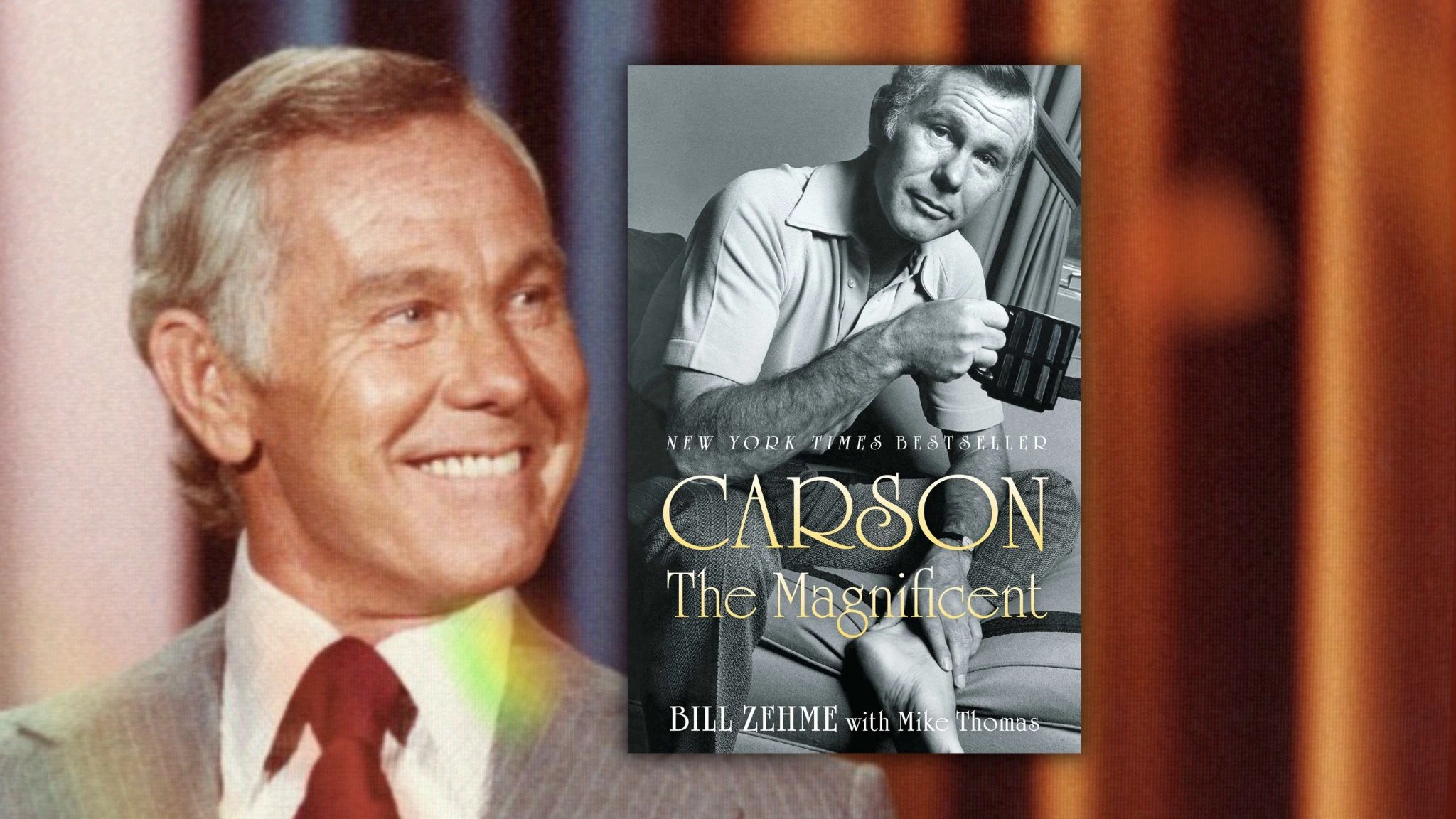
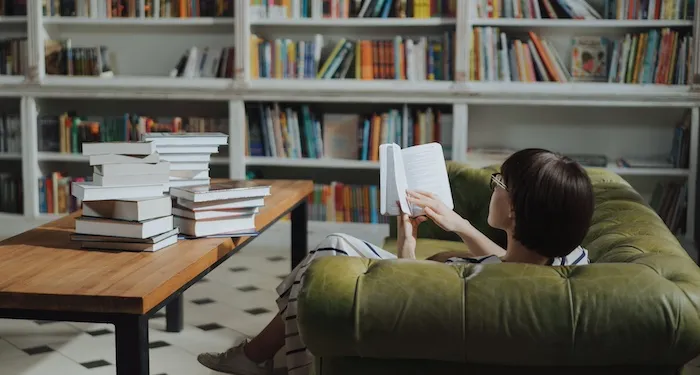
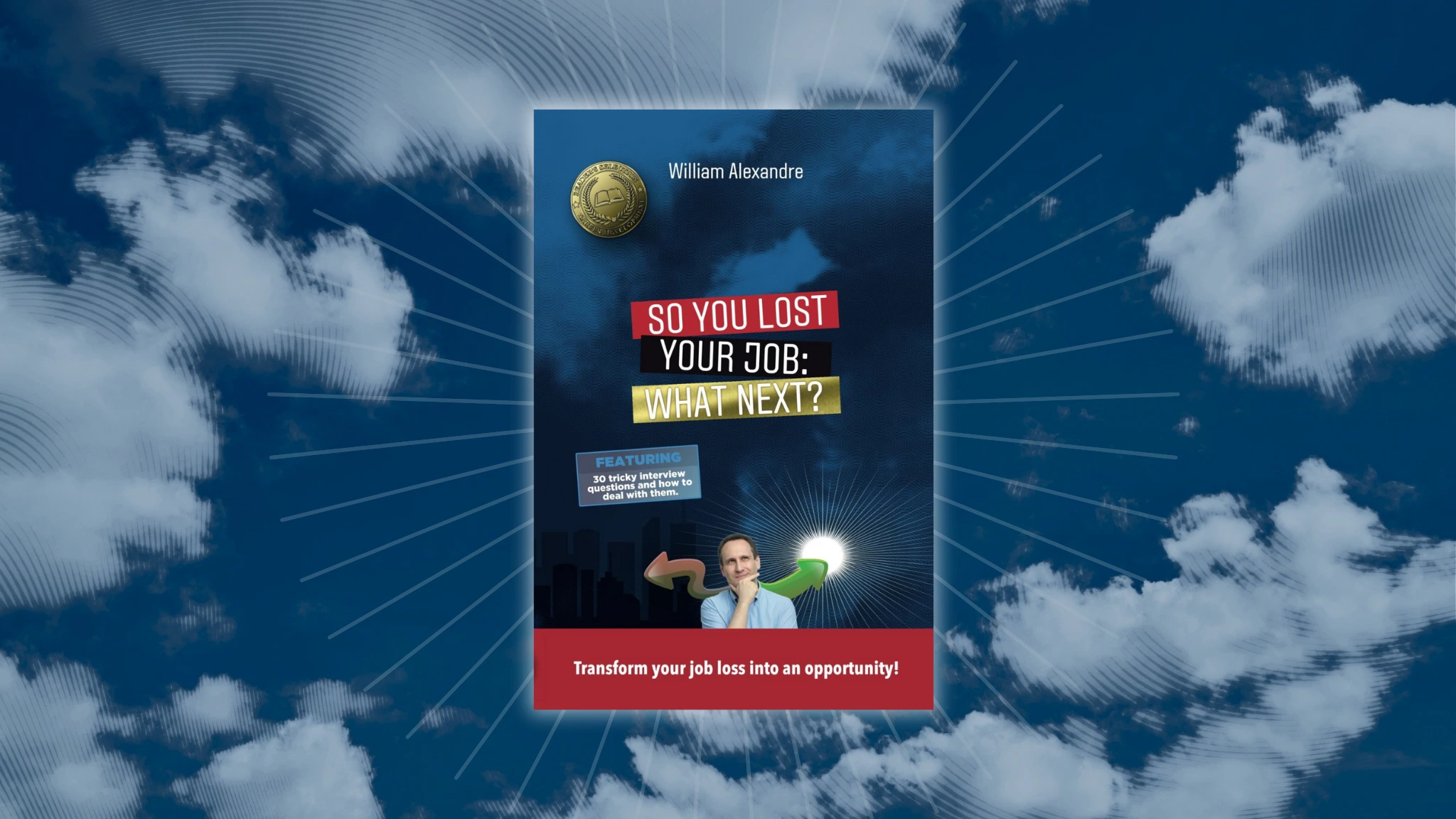
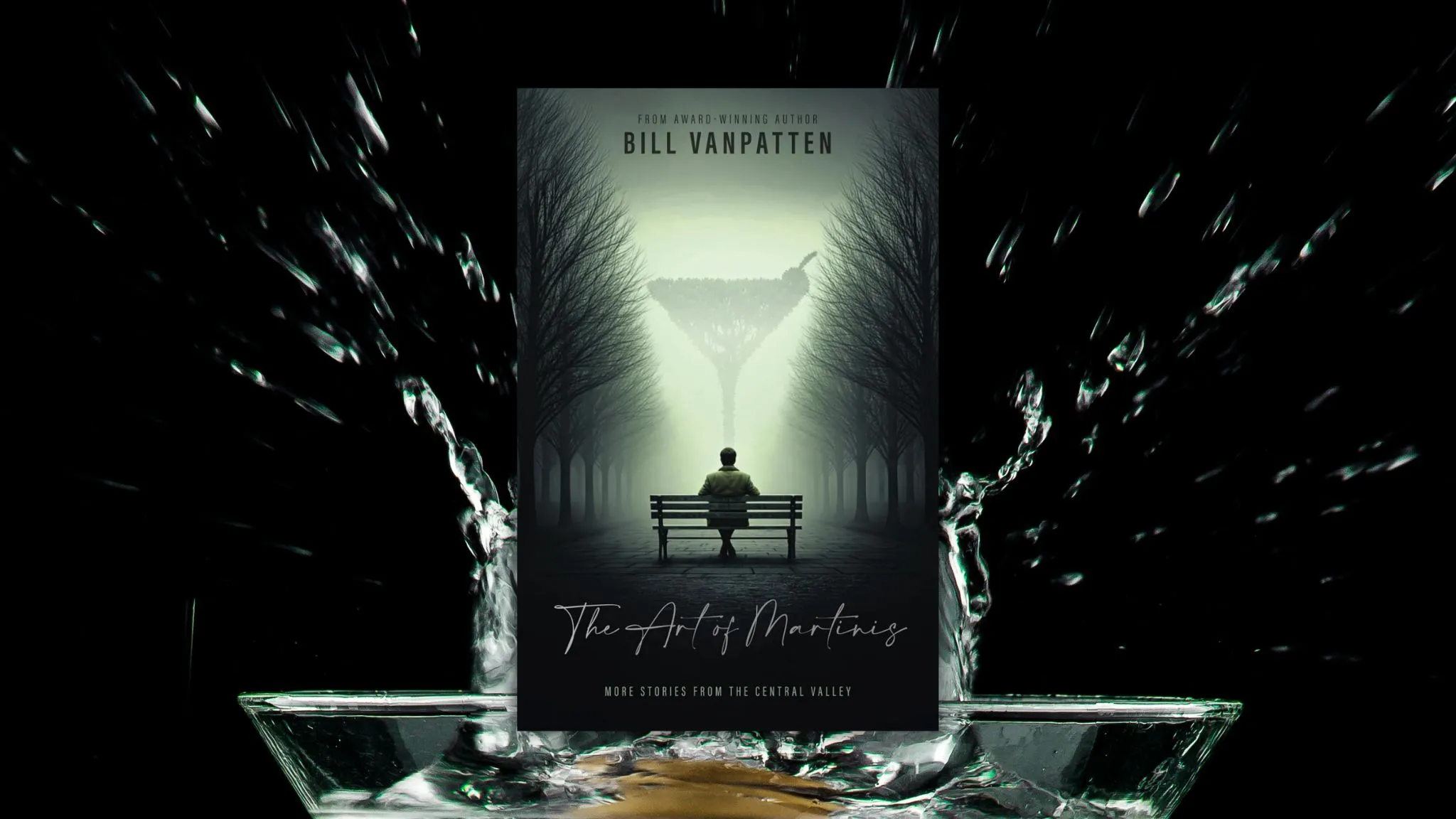
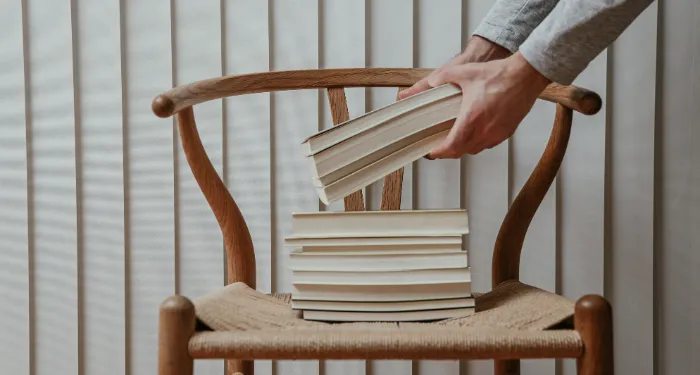
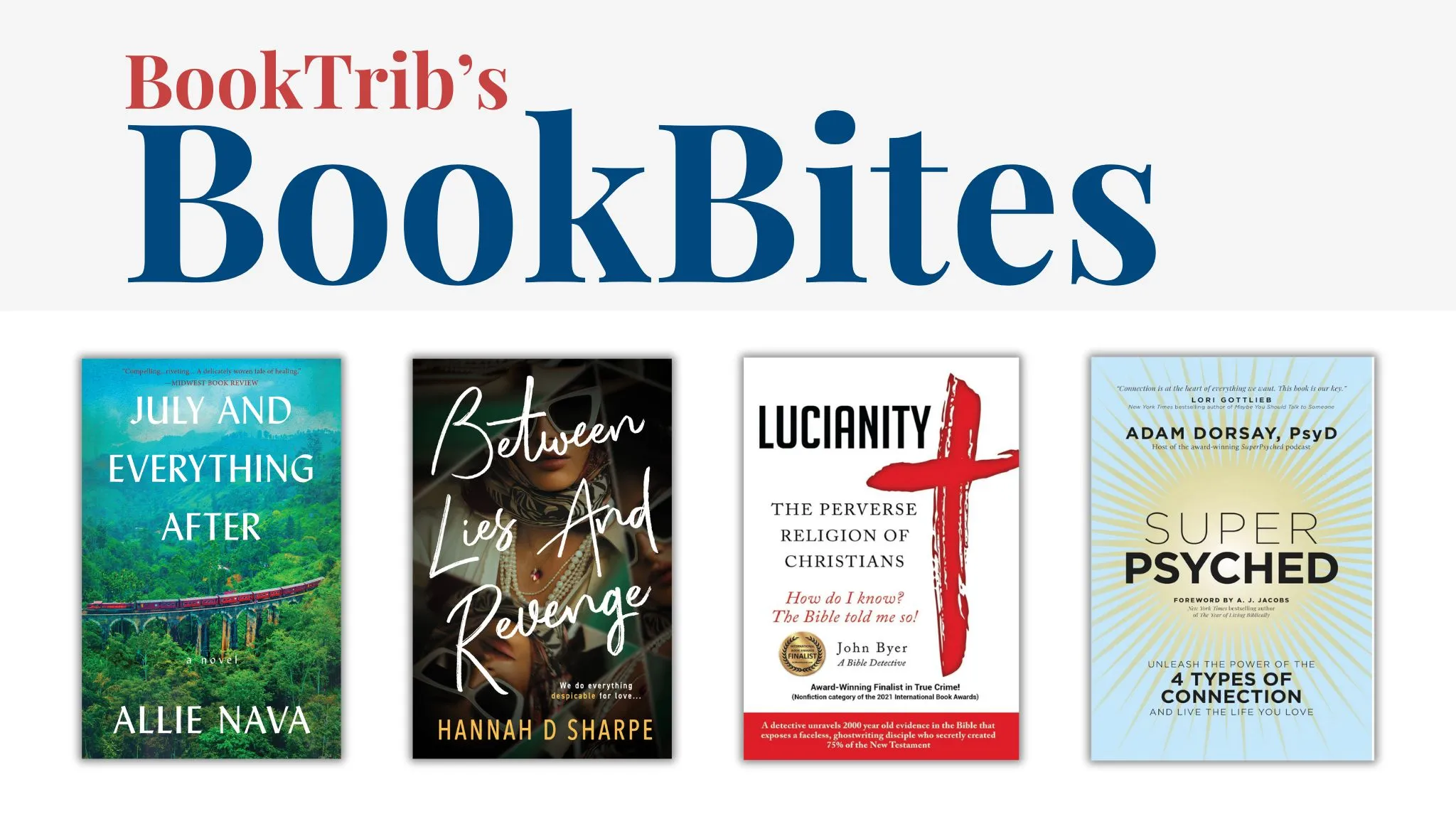
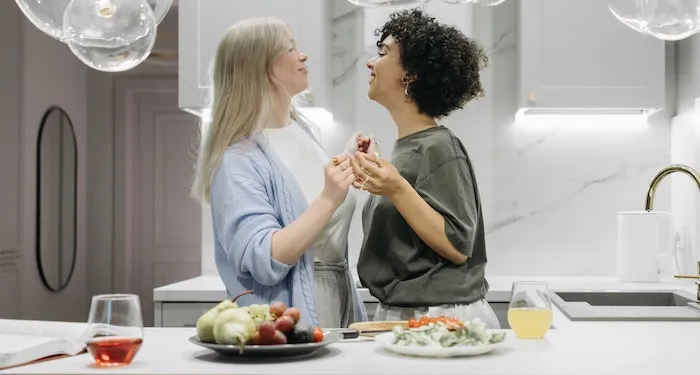
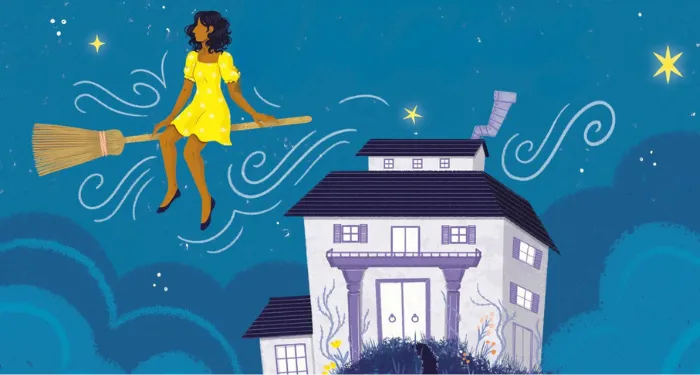

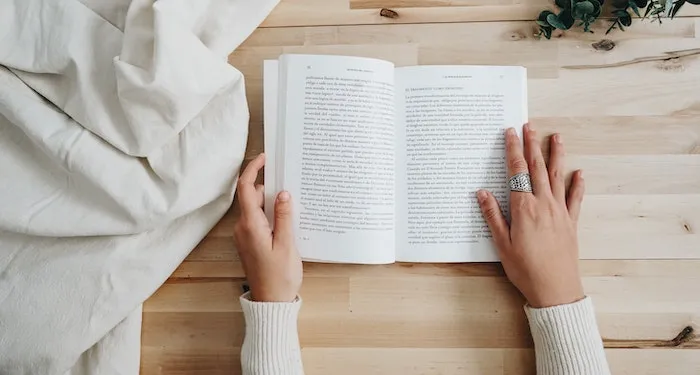
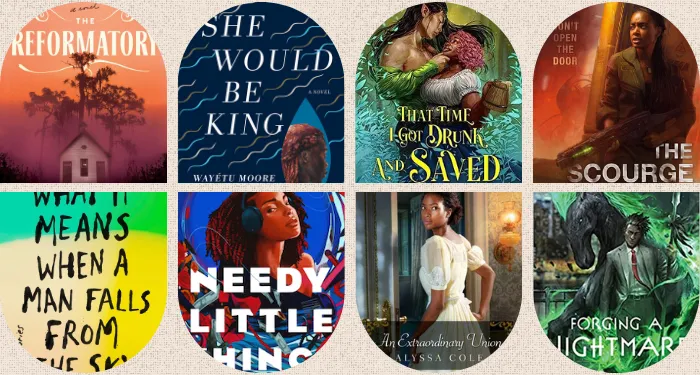



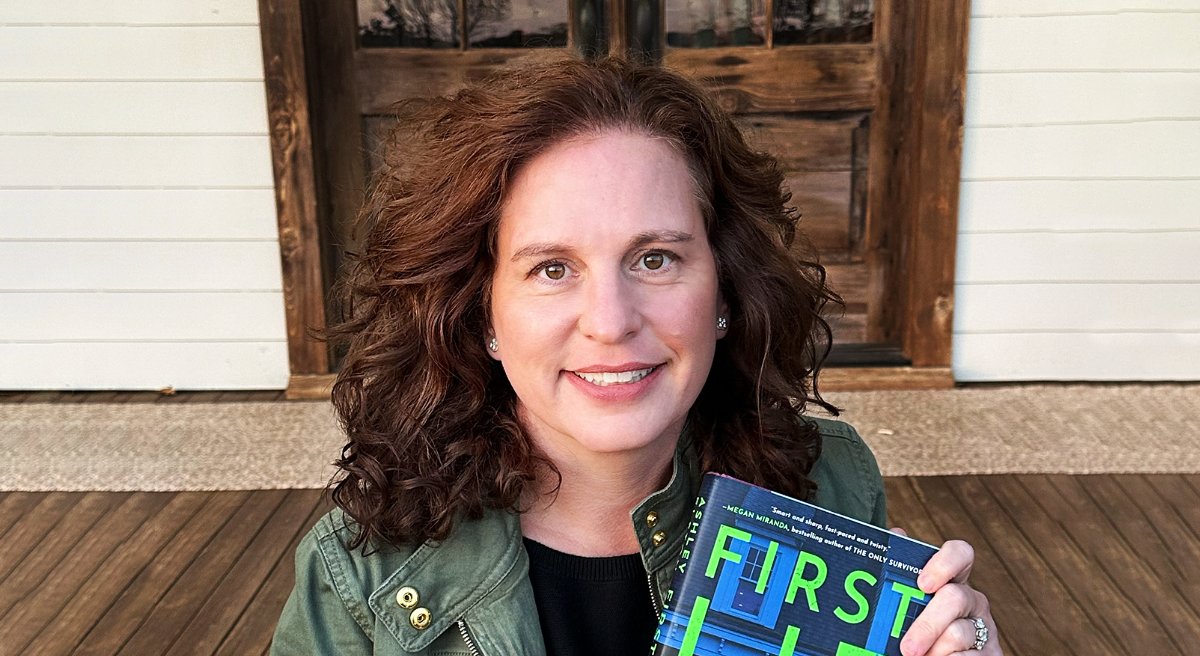

 English (US) ·
English (US) ·